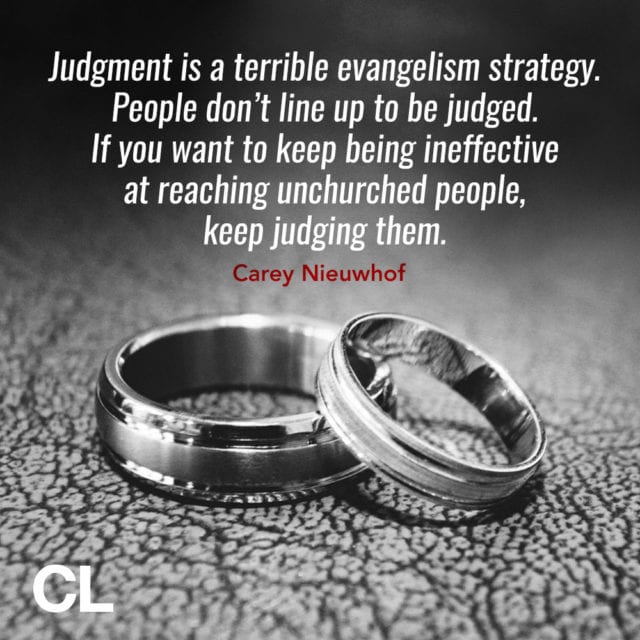I’ll never forget the quiet of the church building on my first day as pastor. I had previously served on a large church staff with many action-packed weekly ministries. The building was a beehive of activity. But in my new role as pastor of a small church, it was a different experience, one my Bible-college training and Christian upbringing didn’t quite prepare me for.
I suspect most of my ministry colleagues have made similar adjustments. I once heard Chuck Swindoll say to a gathering of ministers, “In ministry life, there are more moments of the mundane than the magnificent.” This is true, but why is it so hard to adjust to a ministry of the mundane?
Pastors are rightly motivated to see God do a grand work in their midst. After all, that’s why we surrendered to the call to ministry in the first place. We want to be vessels through which God changes the lives of the people we serve. We read the book of Acts and are inspired, again and again, by the way the Spirit of God builds Christ’s church. And we ask ourselves: Why can’t that happen here, in this community, through this local church?
We all want God to do something big, and we want that big thing to happen through our ministry. This isn’t necessarily a bad or carnal impulse. We should dream, as Paul did in Romans 10:1, for the salvation of those who are alienated from God. We should read the Great Commission and the words of the Lord in Acts 1:8 and the picture of the gathering of the kingdom from all nations in Revelation 5 and 7 as both a challenge to spread God’s name and a promise of Christ’s activity in this generation. Nobody should go into ministry with only a casual interest in seeing people moved from death to life.
God is in the whisper
However, this doesn’t mean we, ourselves, have to be overcome with frenetic activity. Sometimes God moves in big, catalytic moments like conferences and memorable worship services or large-scale events. Other times, however, God moves in the quiet, small things.
I’m reminded of Elijah, who experienced an adrenaline crash after his showdown with the prophets of Baal on Mt. Carmel. Many in Israel still worshiped Yahweh, yet still he was despondent because the big convert, Queen Jezebel, remained hardened in opposition.
As God ministered to his discouraged prophet in 1 Kings 19, he demonstrates God’s unwillingness to be held captive by our expectations. Elijah stood and watched a series of big natural phenomena: a strong wind, an earthquake and a fire. Each time, the text is clear that God was not in any of these events. God was in what came next: a whisper.
Does this mean God isn’t in control of earthquakes and fires and wind? No. Does this mean God doesn’t use big events to bring about his purposes? No. But the point God is making to Elijah and to us who speak and minister for God, is this: God is also in the whisper. He’s in the quiet, ordinary moments of life.
Gregory the Great wrote, “Purity of heart and simplicity are of great force with almighty God, who is in purity most singular, and of nature most simple.”
Most of our professional ministry training prepares us for the big moments. This is good. But I wonder if we go into the pastorate expecting every day to be Mt. Carmel, when more days are like Elijah’s solace under the juniper tree.
We have a natural restlessness. In part it’s a product of the culture in which we live, where we are constantly awaiting the next big thing. Our smartphones light up with alerts from social media, email, text and phones. Each one has the promise of something new: a new conversation, a new opportunity, a new news story. We are mastered by the moment.
I find it extraordinarily difficult to turn this off. It’s a constant battle that I don’t always win. I find it hard not to check my phone regularly, even when I should be present with people.
This is a symptom of not just a busy culture, but a busy heart. We are restless creatures because we are running from the solitude that allows us to meditate, to be quiet, to hear God speak, to repent. It’s uncomfortable to face ourselves, so we fill our time with distractions.
The way of Jesus is not just active ministry. It’s time away with the Father. It’s not just crisis and confrontation; it’s the ordinary, mundane and common. As much as we need to plan the next big event, we need to experience routines, and rest and renewal. At times, this might mean a sabbatical or time away with the family. Often it’s simply structuring our lives to include moments that are not big or consequential: breakfast with friends, a few hours to read and grow, or pursuing a life-giving hobby. I’m reminded of Thomas Carlyle’s statement that silence is “the element in which great things fashion themselves together.”















